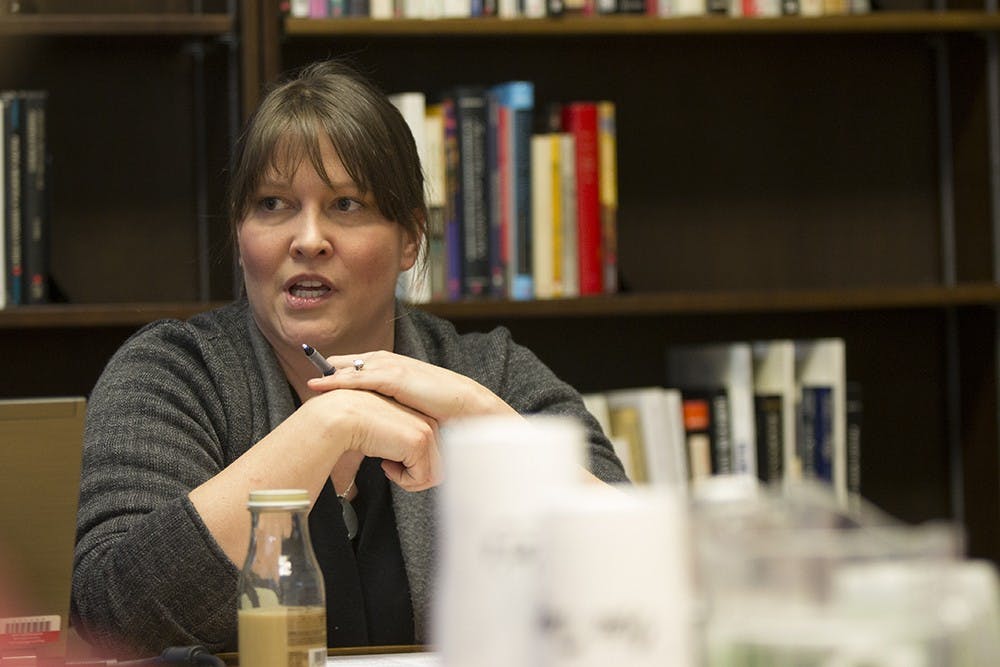She weighed 1.2 pounds and was the length of a Barbie doll.
She endured three surgeries and dozens of blood transfusions throughout her 196 days in the hospital.
Now, three-and-a-half years later, Juniper is healthy and thriving.
Her mother, Kelley Benham French, professor of practice at the Media School, spoke about Juniper’s story at the Poynter Center for the Study of Ethics and American Institutions on Monday evening. Her talk was the third in a series of roundtable discussions hosted by the center.
She discussed the ethical decisions she faced during Juniper’s time in the hospital and explained the ethical decisions she made when writing “Never Let Go,” a Pulitzer Prize-nominated serial narrative published in the Tampa Bay Times in 2012.
The three-part series details French’s experience from before Juniper is born to about six months after her birth.
Since the story ran, French and her husband Tom, fellow professor of practice in the Media School, have spoken at various universities and conferences and appeared in numerous media outlets.
Their stops included Kelley French’s recent trip to the conference “The Power of Storytelling” in Romania.
The pair is currently working on a book about their individual perspectives on Juniper’s story.
At the discussion Monday, French briefly explained the contents of her story before opening up to the audience for questions.
She said one of the biggest ethical dilemmas she confronted in the NICU was the question of who deserves to live and at what cost.
To explain this dilemma, French pointed to the section of her story before Juniper is born.
She and her husband are faced with deciding to either let their daughter go just after she is born, or to hook her up to tubes and wires and hope she makes it out alive.
To inform their decision, one doctor presented her with a statistical chart filled with possibilities for their daughter’s fate.
Juniper had a combined 80 percent chance of either dying or being born with severe disabilities.
But after writing the story, Kelley spoke to John Lantos, director of the Children’s Mercy Bioethics Center, and he offered a different perspective.
“He said that using an odds chart, an 80 percent chance of dying or being disabled is not a useful figure because if you don’t intervene, there is a 100 percent chance of death,” French said. “Also, when a child is born with Down syndrome, there is a 100 percent chance of disability, but we don’t ask if we should save that child’s life. It’s much more complicated than that.”
To better explain her decision, French related an anecdote from one of the nurses she interviewed for her story.
The nurse was working with a father who asked if his potentially disabled son could have sex and put pepperoni on a pizza .
Although the nurse was shocked to hear such a question, the father, who owned a pizza business, figured his son could have a relatively normal life if he could have sex and put pepperoni on a pizza.
“Not everyone is going to Harvard, and they can still have a happy life,” French said. “Your prism changes based on your situations.”






